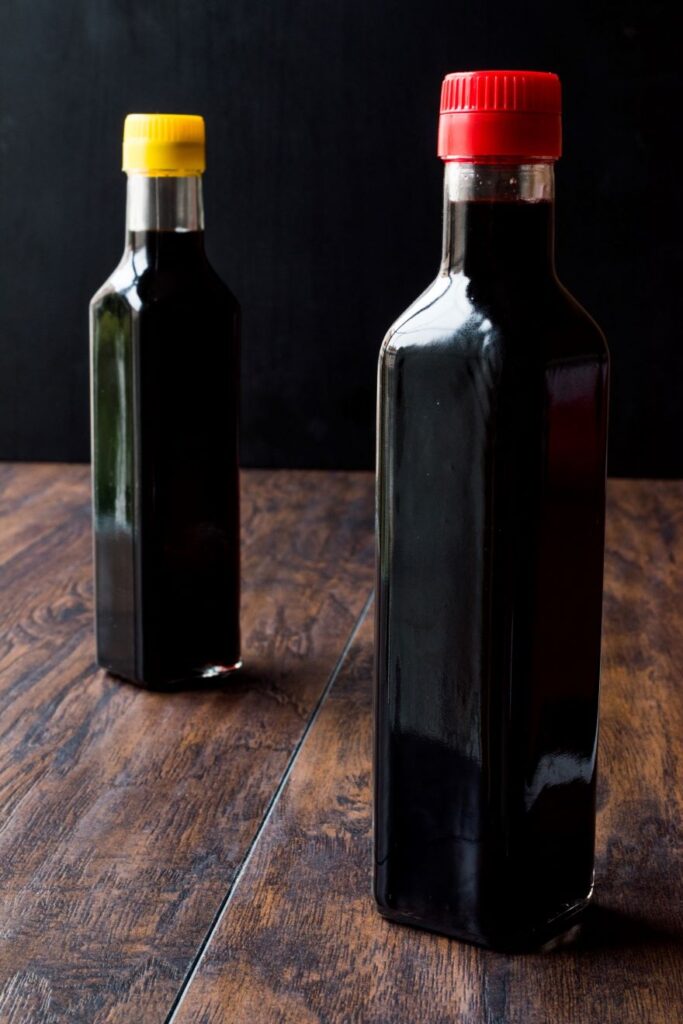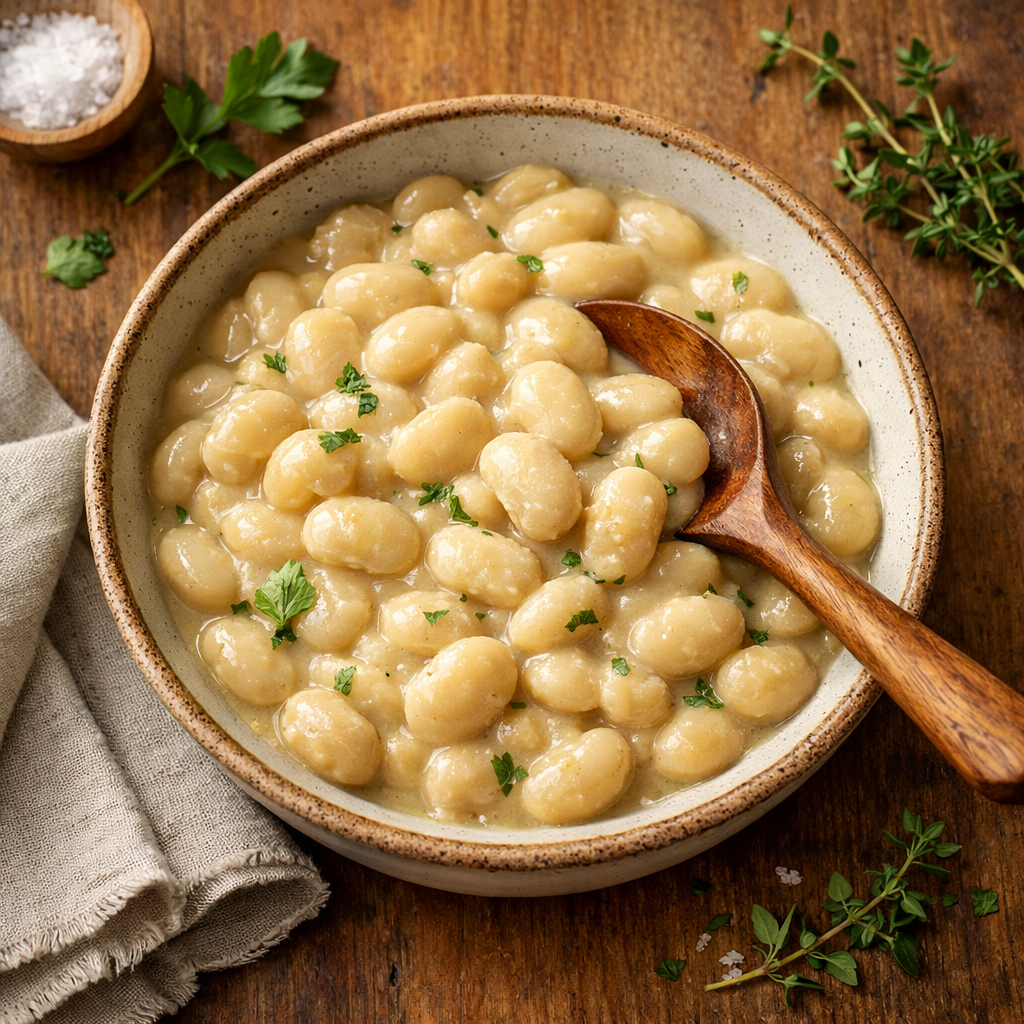Black vinegar, a condiment originating from East Asia, is admired for its unique, tangy flavor and versatility in cooking. This dark, robust ingredient has become a popular addition to many Chinese and Asian recipes, boosting the crave-worthy flavors of these dishes. However, black vinegar might be difficult to find in some areas, leaving those wanting to explore its potential seeking substitute options.
Fortunately, there are viable alternatives to black vinegar that can still capture the essence of its flavor profile without compromising the taste of the dish. While these substitutes might not provide the exact same depth as black vinegar, they come close enough to provide a satisfying result in recipes calling for the popular condiment. By understanding the features and uses of black vinegar and its substitutes, it is possible to continue creating delicious, authentic dishes regardless of the ingredient’s availability.
Key Takeaways
- Black vinegar is a tangy, robust condiment popular in East Asian cuisine.
- There are various substitutes for black vinegar that can provide a similar flavor profile.
- Understanding the uses and features of black vinegar and its alternatives can enhance the culinary experience.
What is Black Vinegar?
Black vinegar, also known as “Kurozu” in Japanese or “Chinkiang vinegar” in Chinese, is a popular type of vinegar in Asian cuisine. It is produced through the fermentation of rice, wheat, millet, or sorghum. The fermentation process gives black vinegar its distinct dark color and unique flavor profile, ranging from sweet to sour and slightly smoky.
We find that black vinegar is a versatile ingredient in many dishes. It can be used as a salad dressing, dipping sauce, marinade, and even in stir-fries. Its robust flavor adds depth to various recipes, and it is an essential component in traditional Chinese and Japanese dishes.
One thing to note about black vinegar is that it contains a variety of health benefits. Due to its fermentation process, it has probiotic properties that can support gut health. Additionally, it is rich in antioxidants and amino acids, which help maintain overall health.
In summary, black vinegar is an indispensable ingredient in Asian cuisine, with a unique flavor and color resulting from its fermentation process. Its versatility allows us to use it in various recipes, while its health benefits make it an attractive choice for those looking to enhance their diet.

Flavor Profile of Black Vinegar
Black vinegar is a unique and versatile condiment with a range of flavors that contribute to its distinct taste. In this section, we’ll explore the key aspects of the black vinegar flavor profile, including acidity and sweetness, complexity and depth, smokiness, and consistency.
Acidity and Sweetness
Black vinegar is known for its balance of acidity and sweetness. The sourness typically comes from the fermentation process, where dark grains like rice, barley, or wheat are slowly fermented. Meanwhile, the sweetness is often derived from the addition of sugar and other flavorings like ginger. This balance makes black vinegar a popular choice for a variety of dishes, as it adds a tangy but slightly sweet taste.
Complexity and Depth
One of the main characteristics of black vinegar is its complex and deep flavor profile. It has a unique combination of essential and hydrophobic amino acids, as well as abundant polyphenolic contents like catechin and chlorogenic acid. This composition gives black vinegar a rich, robust flavor with a hint of umami, making it a great addition to sauces, marinades, and dressings.
Smokiness
In addition to its acidity, sweetness, and complexity, black vinegar also offers a subtle smokiness that enhances its overall flavor. The smoky undertones are a result of the fermentation process and the type of grains used. This smokiness adds another layer of depth and interest to the black vinegar’s profile, making it a versatile and in-demand ingredient.
Consistency
The consistency of black vinegar can vary depending on the specific type and brand. However, it is generally thicker and more viscous than other vinegars, contributing to its rich and full-bodied taste. This thicker consistency makes it an excellent choice for recipes that require a bit more body and flavor intensity.
In summary, black vinegar is a flavorful and versatile condiment with a balanced combination of acidity, sweetness, complexity, and smokiness, as well as a thicker consistency. It’s no wonder that it has become a staple in many cuisines across the globe. For more information about the science behind black vinegar’s taste, you can check out this study on its amino acid, mineral, and polyphenolic profiles.
Uses of Black Vinegar
Black vinegar has a unique flavor that is tangy, slightly sweet, and robust. It complements various dishes and has numerous culinary applications. In this section, we will explore its various uses, including its role in salads, stir-fries, marinades, soups, and sweet and sour dishes.
In Salads
Incorporating black vinegar into your salads adds depth and complexity to the overall flavor. It works exceptionally well when paired with salad dressings, giving them a refreshing tang with a hint of sweetness. You can also drizzle it directly onto your salad for an instant burst of robustness.
In Stir-fries
Black vinegar is an excellent addition to stir-fry dishes, enhancing the overall taste and aroma. When added to the pan, it intensifies the flavors of your stir-fried vegetables, meats, and noodles. Moreover, you can mix it with other sauces like soy sauce or oyster sauce to create a well-rounded and balanced taste profile.
In Marinades
Using black vinegar in marinades is a simple way to tenderize and infuse flavor into your meats. Not only does it add an interesting tang, but it also helps to break down the proteins in the meat, resulting in tender, succulent dishes. Try incorporating it into your next marinade for chicken to level up your favorite recipes.
In Soups
When making soups, adding a splash of black vinegar can contribute a layer of depth and complexity that elevates the dish. It works particularly well in meat-based and vegetarian soups alike. Incorporating it into broths and stocks can provide the perfect balance between acidity and sweetness, enhancing each spoonful’s overall taste.
In Sweet and Sour Dishes
Finally, black vinegar is a key component in creating impeccable sweet and sour dishes. Its unique flavor profile balances the sweetness of honey and the tanginess of other citrus. You can whisk it with ketchup, garlic, ginger, and soy sauce to make a luscious sweet and sour sauce, perfect for coating your chicken or tofu dishes.
Black Vinegar Substitutes
In this section, we’ll discuss various black vinegar substitutes that you can use in your recipes. We’ve divided the substitutes into five main categories as sub-sections.

Balsamic Vinegar
One of the top substitutes for black vinegar is balsamic vinegar. Since it is sweeter than black vinegar, we recommend using a smaller amount to maintain a similar flavor profile. If you want to reduce its sweetness, try diluting it with water.

Rice Vinegar
Another great substitute is rice vinegar, which is commonly used in Asian cuisine. It has a milder and slightly sweet flavor compared to black vinegar. It works well as a substitute, especially if you’re making a dish that calls for an Asian-style vinegar.

Apple Cider Vinegar
Apple cider vinegar is yet another suitable alternative for black vinegar. Its tangy flavor and mild acidity make it a good choice for many recipes. However, remember that its taste differs from black vinegar, so it might not be an exact match in every recipe.

Red Wine Vinegar
Red wine vinegar can also replace black vinegar in some recipes. While it has a different flavor profile, it shares a similar acidity level. If you’re using red wine vinegar as a substitute, you might need to adjust the amount to ensure a balanced taste.
Other Alternatives
There are a few other alternatives to black vinegar that you can try. For instance, you could use lemon juice or Worcestershire sauce for some recipes. Sherry vinegar is another option that may work well in certain dishes. Just keep in mind that each alternative has its own flavor profile, so you’ll need to consider the specific requirements of your recipe when choosing a substitute.
Health and Dietary Considerations
When exploring black vinegar substitutes, it’s essential to consider both the health and dietary aspects of these alternatives. In this section, we’ll discuss their nutrient value and address specific dietary restrictions.
Nutrient Value
Different vinegar substitutes offer varying nutrient values. For instance, balsamic vinegar is known for its antioxidant properties, while apple cider vinegar may help with weight loss and blood sugar management. It’s important to choose a substitute that aligns with your personal health goals and nutritional needs.
Here’s a quick comparison of some common substitutes:
- Balsamic Vinegar: Rich in antioxidants, acidity, and natural sweetness
- Rice Vinegar: Mild flavor with a hint of sweetness; made from fermented rice wine
- Apple Cider Vinegar: High in acetic acid, which may help with weight loss and blood sugar management
Dietary Restrictions
When it comes to dietary restrictions, it’s crucial to choose a black vinegar substitute that works for your unique needs. For example, if you follow a gluten-free diet, you’ll want to avoid malt vinegar as it’s produced from malted barley. Instead, opt for vinegars derived from fruits or rice, such as balsamic vinegar or rice vinegar.
For those adhering to a vegan or vegetarian diet, look for substitutes that don’t use animal byproducts in the fermentation process. Apple cider vinegar or date vinegar are suitable options for these lifestyles.
In conclusion, when choosing a black vinegar substitute, keep in mind the nutrient value and any dietary restrictions you may have. By considering these factors, you can find a suitable alternative that supports your overall health while maintaining the delicious flavors in your recipes.
Conclusion
We’ve explored several options for substituting black vinegar in recipes. Among the alternatives, malt vinegar and rice vinegar stood out as the most promising substitutes. Malt vinegar, with its mild, malty taste, complements fried foods like fish and potatoes well. On the other hand, rice vinegar’s rich flavor and hint of sweetness make it a versatile addition to various dishes.
Whichever substitute we choose, it’s essential to keep in mind that each option brings its unique flavor profile to our recipes, and some adjustments may be necessary to achieve the desired taste. In the end, experimentation is key to finding the perfect balance between new flavors and desired results.
Happy cooking, and let’s continue discovering creative ways to use these delicious black vinegar substitutes!
Frequently Asked Questions
- What is a good alternative to black vinegar? Malt vinegar is a good alternative to black vinegar, as it has a mild, malty taste and light brown color that complements dishes like fish and potatoes. It can also be used in sweet-sour marinades, chutneys, and pickles, as long as it has at least 5% acidity source.
- Which vinegar is closest to Chinese black vinegar? Rice vinegar comes closest to Chinese black vinegar, as it has a tangy and slightly sweet flavor that suits many Asian dishes. However, note that rice vinegar has a milder taste than black vinegar, so you might need to adjust the quantity when substituting it.
- How does black vinegar differ from white vinegar? Black vinegar is a dark, aged vinegar originating from China, and its flavor is complex, tangy, and slightly sweet. White vinegar, on the other hand, is clear and has a very sharp, acidic taste. They are not interchangeable, as they impart different flavors to dishes.
- Is balsamic vinegar similar to Chinese black vinegar? Balsamic vinegar has a thick consistency, dark color, and rich, sweet flavor that resembles Chinese black vinegar to some extent. However, balsamic vinegar is sweeter and less acidic. You can use it as a substitute in some recipes, but it will give the dish a more distinct, Italian-inspired taste.
- Can black rice vinegar be used as a substitute for black vinegar? Yes, black rice vinegar can be used as a substitute for black vinegar, as they both feature a similar dark color and slightly sweet, tangy flavor. They can be used interchangeably in many recipes, but results may vary slightly as black rice vinegar has its own unique taste.

*We may earn a commission for purchases made using our links. Please see our disclosure to learn more.



